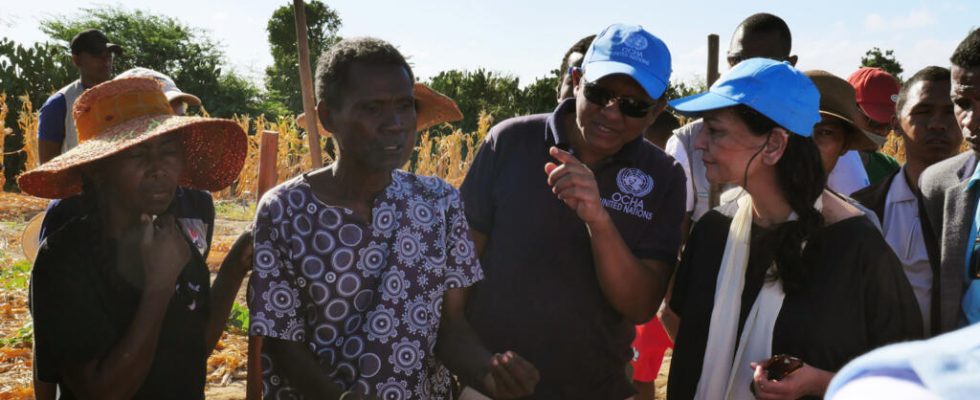According to weather forecasts, the Great South of Madagascar, already very vulnerable to the effects of climate change, is expected to experience increased drought during the year 2024. A consequence of the return of El Niño on the planet. The rain warning lights were triggered on Wednesday February 7 in this area. According to the United Nations, 35 countries are considered “ high risk » in the face of the impacts of El Niño. Madagascar is one of them.
4 mins
From our special correspondent in Sampona,
In the Anosy and Androy regions, the impact of El Niño on meteorology is already being felt: satellite observations as well as weather stations in the south of the country indicate a significant water deficit recorded since October. The consequences of this very low rainfall should be felt by the population from May, the start of the first harvests. The peak of food insecurity is expected for October if the harvests are poor.
To limit the impact of this new climate crisis to come, 2.2 million dollars have already been pre-positioned by donors to anticipate the impacts caused by the lack of rain on crops and allow a network of NGOs to intervene quickly, well in advance of the crisis.
A way, perhaps, to limit the consequences of a drought which promises to be worse than that of 2021, when the Big Island was in the grip of the strongest drought ever recorded over the last forty years.
On January 15, Australian Reena Ghelani was nominated by Martin Griffiths, the UN humanitarian chief, to coordinate the response to the climate crisis and El Niño. She began her mission in the Great South of Madagascar.
RFI: For your very first field visit as Under-Secretary General, you decided to come here to Madagascar, in the Deep South. Why this choice ?
Reena Ghelani: I came to Madagascar as part of my very first trip because, first of all, Madagascar is facing the climate crisis. Second, El Niño appears to be about to arrive. And due to the already existing climate crisis, the impact of El Niño could be worse. Third, Madagascar has learned many lessons that can inspire other countries. The Big Island has already made significant progress in terms of early warning, preparation and anticipated actions.
You say that Madagascar has a lot to teach other countries. Concretely, what are the good practices that come to mind following the visit you have just completed?
The first thing I would say is that the government really steps up and tries to play a leading role in disaster management. It works hand in hand with the United Nations and other partners. Today we saw that together they are working to ensure that communities are prepared for disaster and that the impact is less in the event of a drought or cyclone.
We are in Southern Madagascar where communities are preparing for the drought, with support from Government, UN and partners.
El Niño is hitting an area already affected by climate change. It’s crucial to act now. pic.twitter.com/18y66Q6vHW
— Reena Ghelani (@rghelani) February 2, 2024
Concretely, better prepare for disasters, better prepare for the impacts of El Niño in Madagascar, how we do it ?
We have therefore seen a certain number of things that can be done very concretely. You can already teach communities how to use and grow drought-resistant seeds. You can already teach women how to support health care, even if health systems are not yet ready. You can also provide cash in advance, so that in the event of a crisis, households are already prepared and able to purchase a stock of food for their family. The best impact is that it keeps children in school, communities safe, and the humanitarian response is much less costly.
And what remains to be done?
What we saw today is the type of activities we have been doing, where farmers are learning new drought-resistant farming methods, where mobile clinics are going into communities, where women are learning to educate their families about health and nutrition. What we need is help so that all communities in Madagascar, in the South, can benefit from these activities. So we need money. We need the international community to support these efforts. And it’s not too late to get that money. With this aid, the impact of the crisis should be less.
